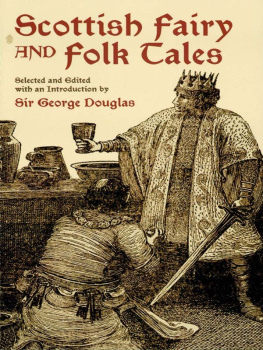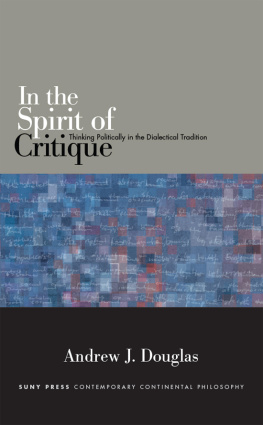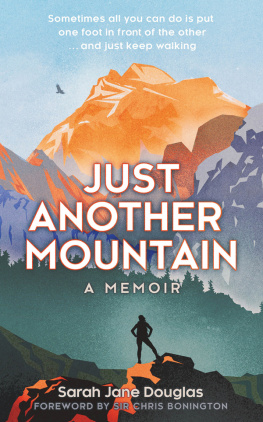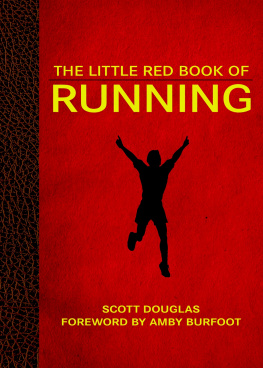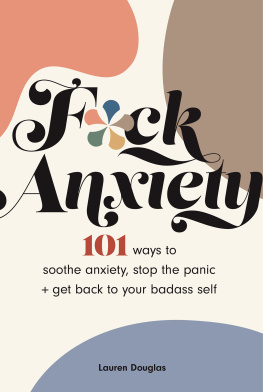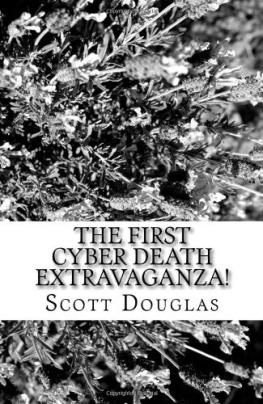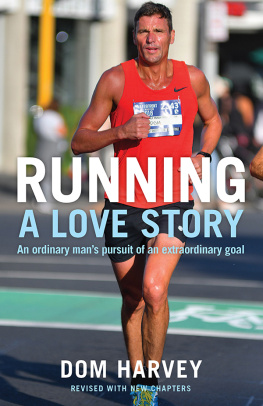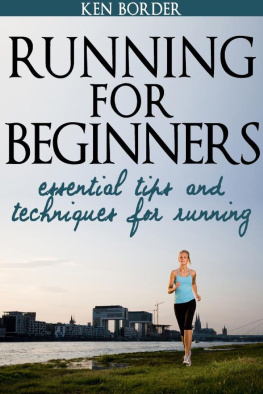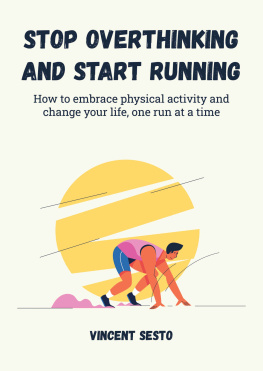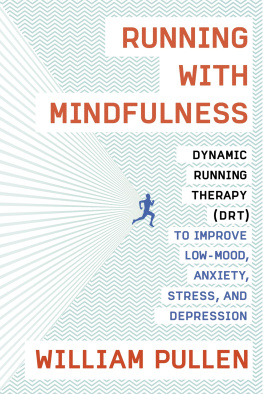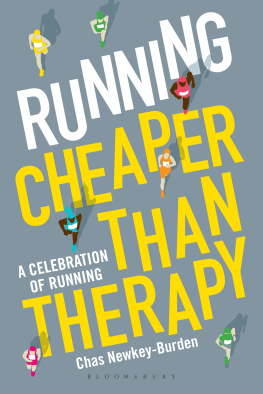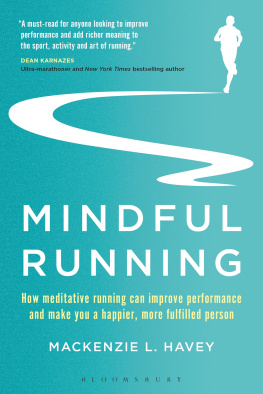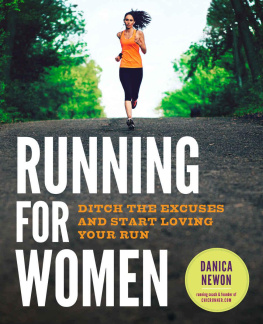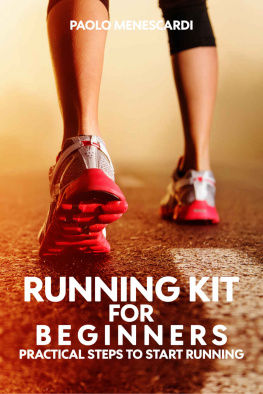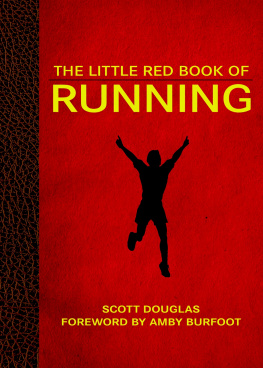ALSO BY SCOTT DOUGLAS
Meb for Mortals
Advanced Marathoning
The Little Red Book of Running
RUNNING IS MY THERAPY: Relieve Stress and Anxiety, Fight Depression, Ditch Bad Habits, and Live Happier
Copyright 2018 by Scott Douglas
Foreword copyright 2018 by Alison Mariella Dsir
Photographs copyright 2018 by Alison Wade
All rights reserved. Except for brief passages quoted in newspaper, magazine, radio, television, or online reviews, no portion of this book may be reproduced, distributed, or transmitted in any form or by any means, electronic or mechanical, including photocopying, recording, or information storage or retrieval system, without the prior written permission of the publisher.
This book contains the opinions and ideas of its author. It is intended to provide helpful and informative material on the subjects addressed in the book. It is sold with the understanding that the author and publisher are not engaged in rendering medical, health, or any other kind of personal professional services in the book. The author and publisher specifically disclaim all responsibility for any liability, loss, or riskpersonal or otherwisethat is incurred as a consequence, directly or indirectly, of the use and application of any of the contents of this book.
The Experiment, LLC | 220 East 23rd Street, Suite 600 | New York, NY 10010-4658
theexperimentpublishing.com
Many of the designations used by manufacturers and sellers to distinguish their products are claimed as trademarks. Where those designations appear in this book and The Experiment was aware of a trademark claim, the designations have been capitalized.
The Experiments books are available at special discounts when purchased in bulk for premiums and sales promotions as well as for fund-raising or educational use. For details, contact us at .
Library of Congress Cataloging-in-Publication Data
Names: Douglas, Scott, 1964- author.
Title: Running is my therapy : relieve stress and anxiety, fight depression, ditch bad habits, and live happier / Scott
Douglas.
Description: New York : Experiment, 2018. | Includes bibliographical
references.
Identifiers: LCCN 2018000558 (print) | LCCN 2018001846 (ebook) | ISBN
9781615194452 (ebook) | ISBN 9781615194445 (pbk.)
Subjects: LCSH: Running--Psychological aspects. | Runners (Sports)--Mental
health. | Runners (Sports)--Conduct of life.
Classification: LCC GV1061.8.P75 (ebook) | LCC GV1061.8.P75 D68 2018 (print)
| DDC 613.7/172--dc23
LC record available at https://lccn.loc.gov/2018000558
ISBN 978-1-61519-444-5
Ebook ISBN 978-1-61519-445-2
Jacket and text design by Sarah Smith
Author photograph by Stacey Cramp
Manufactured in the United States of America
First printing April 2018
10 9 8 7 6 5 4 3 2 1
For everyone who runs to manage their mental health.
Lets keep going.
APPENDIX: QUICK TIPS ON USING RUNNING TO MANAGE MENTAL HEALTH
Any run is better than no run when it comes to short-term mood improvement or long-term help with depression and anxiety. But some runs are more effective than others. Heres some brief guidance on how best to get a postrun boost. Most of these topics are covered in greater detail in .
How Far: Most studies find significant mood boosts after 30 minutes of running. Improvements in mood tend to last longer after longer runs. But a 20-minute run is much closer to a 90-minute run than it is to not running. Avoid all-or-nothing thinking about duration or distance, such as that a real run has to be at least five miles long or its not worth doing. The most important step on any day is the first one, the one that gets you out the door. On tough mental days, start your run with a flexible route that you can shorten or lengthen as feels best.
How Fast: Research has found the greatest increase in get-happy brain chemicals following moderate-intensity workouts. In running terms, thats your basic getting-in-the-miles effort at a conversational pace. But theres more to mood than brain chemical levels. Pushing yourself through a hard workout provides a needed sense of setting and accomplishing a goal. At the other end of the spectrum, give yourself permission to run as slowly as you want on especially tough mental days. Again, the most important thing about any one run is that it happens.
Where: People usually report better mood improvement (more tranquility, greater reduction in stress, anxiety, and depression) when running in natural settings compared with populated human-made environments. Of course, schedules and geography usually get in the way of regularly running through paradise. Choose visually interesting routes with minimal traffic as often as possible. When time allows, make an effort to run in beautiful settings for an above-and-beyond boost.
When: Plan to run whenever youre most likely to actually run most of the time. Many runners with depression and anxiety especially value morning runs because they set a positive tone and provide an example of success for the rest of the day.
With Whom: Assuming you have options on whether to run solo or with others, opt for whichever setup feels right for the day. Running by yourself can work best when you need to think through an issue with the help of that special on-the-run clarity. A solo run before or after a hectic day will probably also be more calming. Run with others when you need a break from your internal monologue or would benefit from talking through things with trusted friends. And if youre struggling to activate, schedule runs with others to increase the chances of getting out the door.
With What Purpose: Regularly mixing up all of the above variables should keep your running more interesting, which will make consistently going for runs more likely, which will mean greater mental-health benefits. Having runs of different length, intensity, and setting within each week also helps free you from the common thinking trap that all your days are the same.
NOTES
.
.
.
.
.
.
.
.
.
.
.
.
.
.
.
.
.
.
.
.
.
.
.
.
.
.
.
.
.
.
7. T. J. Schoenfeld et al., Physical Exercise Prevents Stress-Induced Activation of Granule Neurons and Enhances Local Inhibitory Mechanisms in the Dentate Gyrus, Journal of Neuroscience 33, no. 18 (May 1, 2013): 777077, ncbi.nlm.nih.gov/pubmed/23637169.
.
.
.
.
.
.
.
.
.
.
.
.
.
.
.
.
.
.
.
.
.
.
.
.
.
.
.
.
.
.
.
.
.
.
.
.
.
.
.
.
.
.
.
.
.
.
.
.
.
. Mihaly Csikszentmihalyi et al., Running Flow: Mental Immersion Techniques for Better Running (Champaign, IL: Human Kinetics, 2017), 6.
.
.
.
.
.
.
.
.
.
.
.
.
.
.
.
.
.
.
.
.
.
.
.
.
.
ACKNOWLEDGMENTS
Several people, most of them strangers to me, talked openly about running to manage their mental health. Their candor inspired me to share more of my experiences.
Several experts on the various topics in the book endured my odd, rambling questions. Paddy Ekkekakis and Laura Fredendall were especially generous with their time and knowledge. Its been said that a book is a collection of pages containing at least one error. Any mistakes in this book are my fault, not the experts.
Next page

